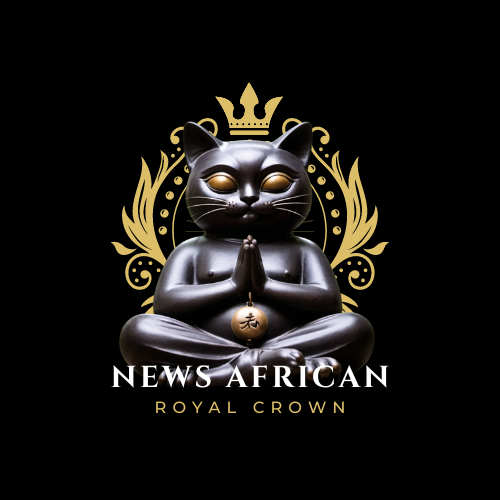
Nelson Mandela believed that forgetting the past would help white people embrace democracy.
Nelson Mandela, in the Long Walk To Freedom, demanded that black people “forget the past“. This comes after white people, who ruled South Africa for more than 300 years, used their political power to sustain a racialised rule of law, where being black was equivalent to being a nothing that exists — a kaffir.
For Mandela, forgetting the past is the prerequisite for the embracement of democratic triumph over the horrors of apartheid. This spirit of democratic-triumphalism was meant to serve as a pretext strong enough to pave the way for the re-entry of white people into a new South Africa.
The substantive logic of this pretext also meant that black people were coerced to a nonconsensual outcome of the negotiated settlement, at the expense of avoiding “racial war” whose flames were sparked by white people.
Yet in this coercion blackness, as a registry of suffering, became a cannon fodder or shield for the politics of liberal democracy, through which the end of white rule in South Africa was mediated by bourgeois euphoria that resonated with the white fantasies of race — fantasies of power — that granted white people clemency without pleading for it.
This pretext for an ahistorical colour-blind universalism is despite the many instances Mandela recounts coming face to face with a burning desire for “revenge” but chose “reconciliation”.
In between this paradox lies a history of a people who have been tormented by dehumanisation; a history of apartheid and racism — a history of violence and torture. It is a history of white people, but more than anything it is a history of us all — a history from which we are all entangled and trapped.
Under this entrapment the fate of black people is in the hands of white people, it is in internalising the old myth of white authority; a self-consciousness that is inherently welded in the fabric of this nation. One welded in the social construction of whiteness.
The wisdom of Mandela’s ethics emanates not from a retributivist approach, but from his recognition of the essential humanity of his oppressors, a white humanity imbued, and inflated, with the metaphysics of race that refuses to overcome its mythologies of power whose violent origins reassert their practices of oppression.
The latter configures the continual reassemblage of the biological standards, white standards, which fosters social conditions that are a continuum of degradation and humiliation of black people.
The totalising logic of these standards, which are presented as an epitome of humanity and morality, ploughed the seed of a political freedom that does not match reality, and that failed to erase the legacy of apartheid.
This political freedom is anchored on Joe Slovo’s proposition of the sunset clause and its government of national unity, which foreclosed the urgency for punishment and instead emphasised “amnesty” and “power-sharing” — all of which did nothing to unsettle the promises of the future that can never be achieved.
If apartheid was declared a crime against humanity, what kind of punishment the white society should have received that equalled this crime? That is, to what extent is liberal democracy an authorisation of the exoneration of apartheid injustice in the name of upholding democracy?
What I am certain about is that the substitution of punishment with constitutional democracy is the moral and juridical telos of universal law that transgresses the purpose for which punishment was meant to serve — rehabilitation and deterrence.
And I argue that these would have prevented the future likelihood of racist unrepentance and rampant racial bigotry that have plagued this country for the past 30 years.
Our democracy is neither compensatory, nor accountable for the socio-historical legacy of apartheid and has lost its redemptive connection to justice. That is one of the reasons black people are suffocating.
This suffocation is also partly because of not telling the truth about this little rock called South Africa, a rock that was founded on the sweat, tears and blood of black people; a shiny rock of white privilege.
In the preface of Conversations with Myself, Barack Obama claims that what Mandela accepted as his political duty was, in fact, a refusal to accept the ills of the world without attempting to change it.
Such a claim, it seems to me, was meant to reaffirm the extent of the man’s conviction to peace and freedom.
In our days there aren’t many visionaries with the same kind of conviction for change.
Mandela spoke so avidly about the transformative value of being publicly condemned by the apartheid regime, and at times by his own comrades; and how this condemnation was a form of transitory supplement that propelled him towards embracing accountability for his political actions.
But, looking at the history of this country very closely, examining it deeply, studying it carefully and understanding it for what it is becomes testament to the impossibility of forgetting it.
For it is too loud, too violent and too visible for us not to see and remember it; and this is an indelible reminder why black people cannot afford to forget their past or past injuries.
It is a reminder that the stains of blood in the history of South Africa are undeniable, unbearable or, worse, unforgettable.
The mission of our current time is to never forget.
Bukelani Mboniswa is the author of The Season of Whiteness: A Biography of Nothingness, Paint Me White: The Black Man’s Tragedy and Rainbow Nation: The Propaganda of Democracy.



